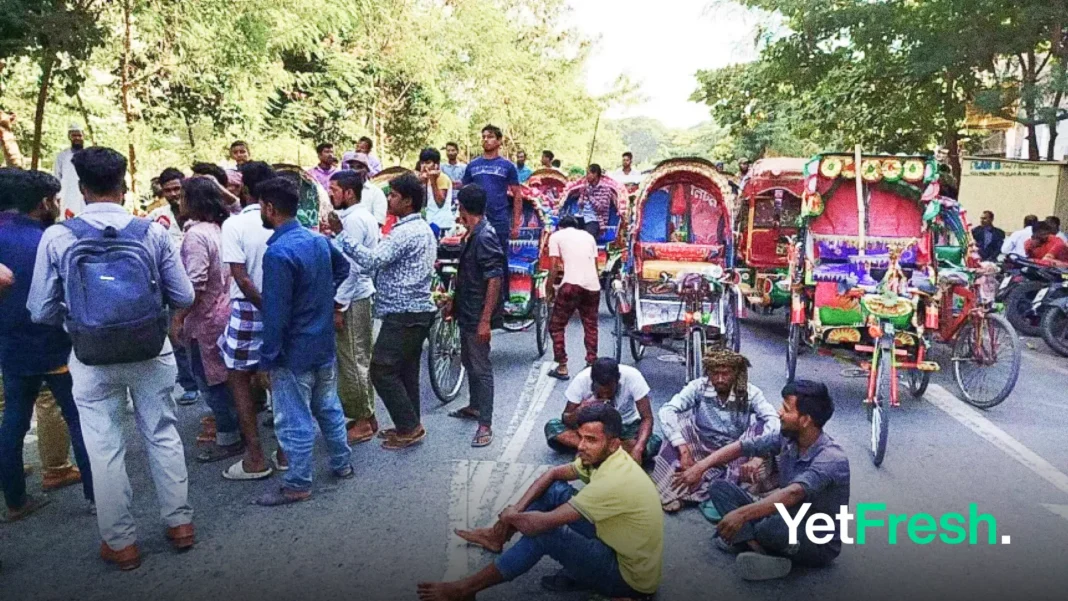Summary:
- Battery-run rickshaw and easy bike drivers blocked Chattogram’s Agrabad intersection for hours on Thursday, demanding revocation of fines, vehicle impoundment rules, and formal licensing policies.
- Protesters under the Rickshaw, Battery Rickshaw-Van, and Easy Bike Sangram Parishad demanded cancellation of Tk 3,250 fines (including Tk 2,500 penalties) and 10-day police custody for seized vehicles.
- Authorities, represented by West Traffic Zone DC Nishkriti Chakma, stated decisions require ministry-level intervention, emphasizing compliance with existing laws while negotiating to clear the blockade.
- The protest underscores ongoing tensions between informal transport operators and regulators in Chattogram, a city reliant on battery-powered vehicles for urban mobility despite regulatory challenges.
Battery-run rickshaw and easy bike drivers paralyzed traffic at Chattogram’s Agrabad intersection on Thursday afternoon during a protest over regulatory measures. The demonstration, organized by the Rickshaw, Battery Rickshaw-Van, and Easy Bike Sangram Parishad, began around 12:00 p.m. and continued into the evening, disrupting one of the port city’s busiest commercial hubs.
Protesters gathered outside the Agrabad Traffic Office of Chattogram Metropolitan Police, demanding three key changes: revocation of a Tk 3,250 fine (including Tk 2,500 penalties) for operating battery-powered vehicles, elimination of a 10-day impoundment rule for seized vehicles, and immediate implementation of BRTA-approved licenses, route permits, and dedicated service lanes.
West Traffic Zone Deputy Commissioner Nishkriti Chakma confirmed authorities were negotiating to restore order, stating: “The decision on these issues comes from the ministry, and the police cannot act alone. We are working as per existing laws and documents.” She emphasized efforts to persuade demonstrators to clear the roadway while maintaining procedural compliance.
The protest highlights growing tensions between informal transport operators and regulators in Bangladesh’s second-largest city, where battery-powered vehicles remain critical for last-mile connectivity despite safety and regulatory concerns.
Source: The Daily Star




